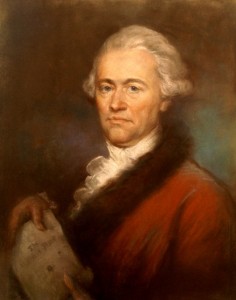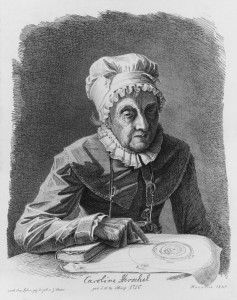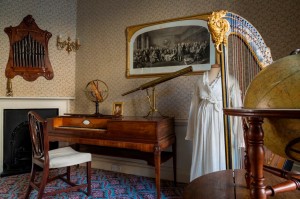A 12-month long series of events is to be staged in Bath this year to mark the bicentenary of the death of astronomer William Herschel, best known for discovering Uranus while living in the city.
The Heritage Lottery Fund has awarded £64,000 to Bath Preservation Trust, which owns the city’s Herschel Museum of Astronomy, to help commemorate the astronomer’s contribution to our understanding of the solar system.

A diverse range of activities and events is to be staged that can be enjoyed by children, teenagers and adults – many of them free.
The events will include new planetarium shows created in partnership with the University of Bath and Percy Community Centre for disadvantaged families in Bath.
Free craft workshops will enable families to visit the museum on New King St and develop creative responses of their choosing to objects in the museum, along with the discoveries and life stories of William, pictured, who died on 25 August 1822, and his sister Caroline, pictured below, who moved to Bath from Hanover with him in the second half of the 18th century.
A new exhibition, organised in partnership with the Royal Astronomical Society and the Herschel family, will bring collections to Bath for the first time and reveal the family’s remarkable story through original artefacts.
The exhibition will also engage with local students to give them the opportunity to develop content and learn curatorial skills with the support of the museum’s professional staff.
The museum, pictured below, is also working with artist Lynda Baird, who is creating a light box installation which will provide a creative response to the Herschel achievements and in return, encourage art-lovers to visit it.

The museum now occupies the house where William and Caroline lived, worked and made several important discoveries during the late 1700s.
It was in the garden that, on a March night in 1781, William used a homemade telescope to became the first person to see Uranus, a planet that at its closest to earth is 1.6bn miles away.
A commemorative stone will be laid in the garden to not only mark the anniversary of his passing but also serve as a telescope platform.
Bath Preservation Trust is also creating a series of trails around the museum itself, which will make its collections even more accessible for everyone. Members of the public will be invited to vote for their favourite objects, which will then feature in the trails.
Bath Preservation Trust director of museums Claire Dixon said the Herschel Museum of Astronomy was an important contributor to Bath’s cultural offer and the events planned for this year would have a long-lasting legacy beyond 2022.
“By commemorating the 200th anniversary of William Herschel’s death we aim to better connect visitors to the museum with his story, encourage inspiration, learning and enjoyment of astronomy,” she added.
Although dedicated to his time in Bath, the museum is working with volunteers from the Herschel Society to research locations throughout the UK that have connections with William Herschel.

The data will be used to create a new downloadable map that highlights these places and enables interested audiences to travel across the UK to find out more.
Other events will involve the expertise of Bath Astronomers and, courtesy of a new partnership with Slough Museum, a series of additional performances, exhibitions and participatory activity to engage communities in the Berkshire town with the story of William Herschel.
Caroline Herschel was the first woman in Britain to receive a royal pension for astronomy and in 1828 became the first to win the RAS Gold Medal, awarded in recognition of her discovery of eight comets and her work refining and updating star catalogues.
Bath Preservation Trust, which was set up in 1934, also operates the museum in No.1 Royal Crescent, Beckford’s Tower and the Museum of Bath Architecture.
For more information about Herschel 200 and the Herschel Museum of Astronomy, visit herschelmuseum.org.uk



















